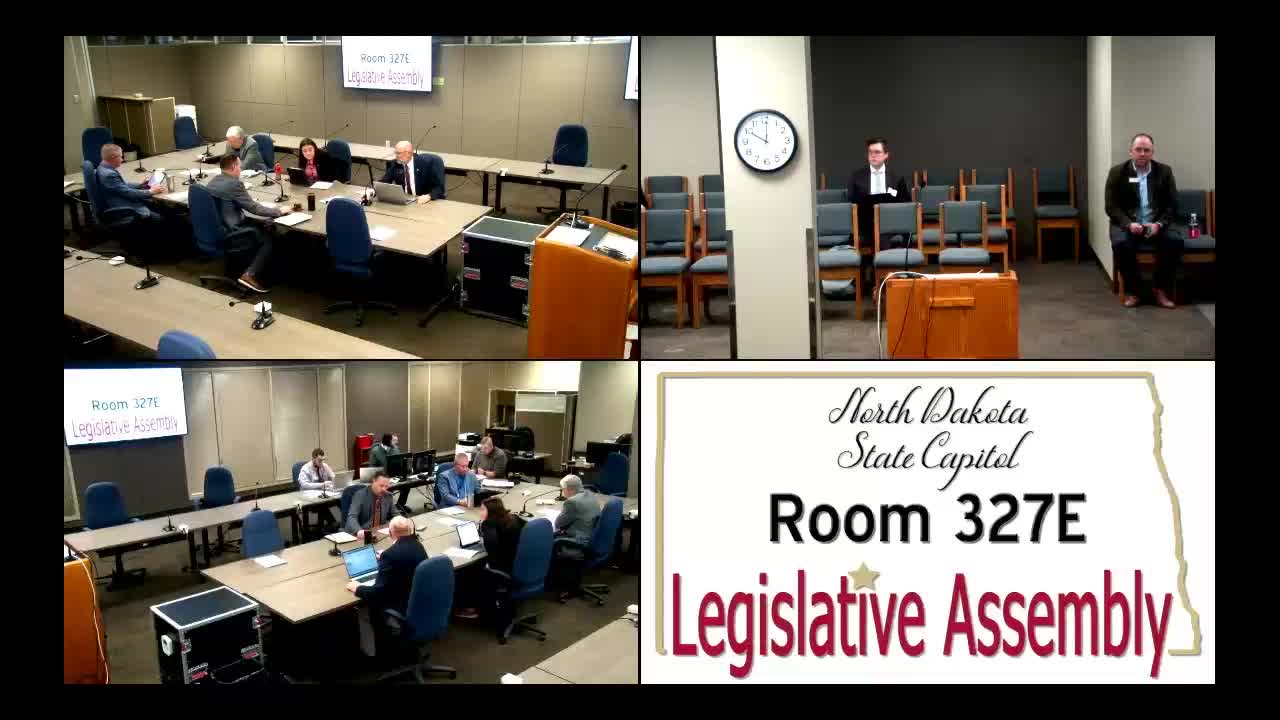Conference committee accepts Senate amendments to House Bill 1229 on presumptive fleeing; vote 4-1
Get AI-powered insights, summaries, and transcripts
Subscribe
Summary
A conference committee on House Bill 1229 voted 4-1 to accept Senate amendments that treat a presumed fleeing offense as a noncriminal traffic violation while referring a separate study of driver license points for later consideration. The measure now proceeds to each chamber's floor.
A legislative conference committee on House Bill 1229 voted 4-1 to accept Senate language that treats a presumptive fleeing offense as a noncriminal traffic violation and to send the measure back to each chamber for floor action.
The decision came after senators and representatives heard legal opinions and testimony about how the bill would operate alongside existing municipal ordinances and court rulings. Chairman Koppelman called the committee to order and recessed debate to hear from Senator Rummel, who summarized written legal input he had solicited about the bill’s presumption clause.
Senator Rummel said he collected opinions from four attorneys, including the governor’s counsel and municipal attorneys, and read from a North Dakota Supreme Court precedent. “House Bill 1229 is a traffic offense, not a criminal offense,” Rummel said, referencing North Dakota Century Code 39-06.1 and a prior court ruling that treats registration as prima facie evidence of vehicle operation.
Brad Schafer, driver and vehicle director for the Department of Transportation, told the committee how the bill would appear on driving records and whether incidents would be reported to insurers. “If you use the one of the ‘get out of jail free’ cards, then it would not be reportable because it wouldn't be going on your driving record,” Schafer said. Schafer also confirmed that if a vehicle owner pleads guilty rather than using procedural options, the fine and a 0-point outcome could be recorded on the owner’s driving record.
Stephanie Engerbretson, representing the Chiefs of Police Association of North Dakota, said the association supports a state-level provision so all law enforcement agencies can use the evidentiary presumption uniformly. She told the committee that the presumption language that appears in some city municipal codes is typically an evidentiary tool rather than a standalone offense and that counties and the highway patrol cannot create equivalent local traffic ordinances.
Committee members debated whether the state statute was needed where some cities already have similar ordinances and whether a companion study on driver license points should be attached. Senator Corey and others expressed concern that a study might be treated as a placeholder and not selected for legislative management, while Representative Greenheck said she could accept the Senate amendment and favored a separate, broader study of points and fines later.
After discussion the panel moved and seconded a motion to accept the Senate amendments. The clerk recorded votes as: Chairman Koppelman — yes; Representative Greenheck — yes; Senator Rummel — yes; Senator Paulson — yes; Senator Cory — no. Representative Schatz was not present. The motion passed 4-1 with one member absent.
The committee recorded that the Senate amendments would be carried back to each chamber by the respective chairmen and that the measure’s final status depends on floor action. The committee also noted interest from several law-enforcement groups in a state-level uniform rule and discussed the practical effects on juveniles and vehicle owners when someone else uses a vehicle and flees police.
Pending floor votes, the committee adjourned.
